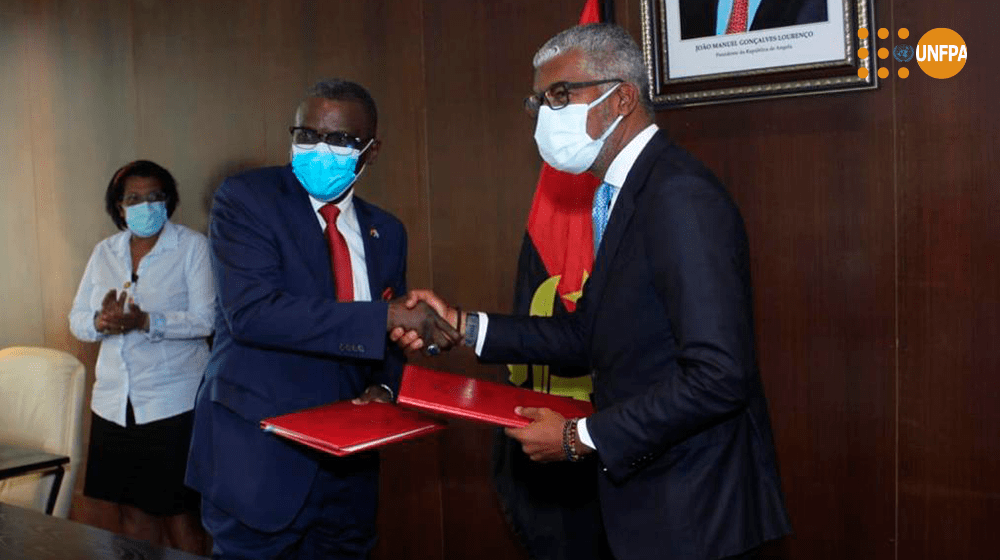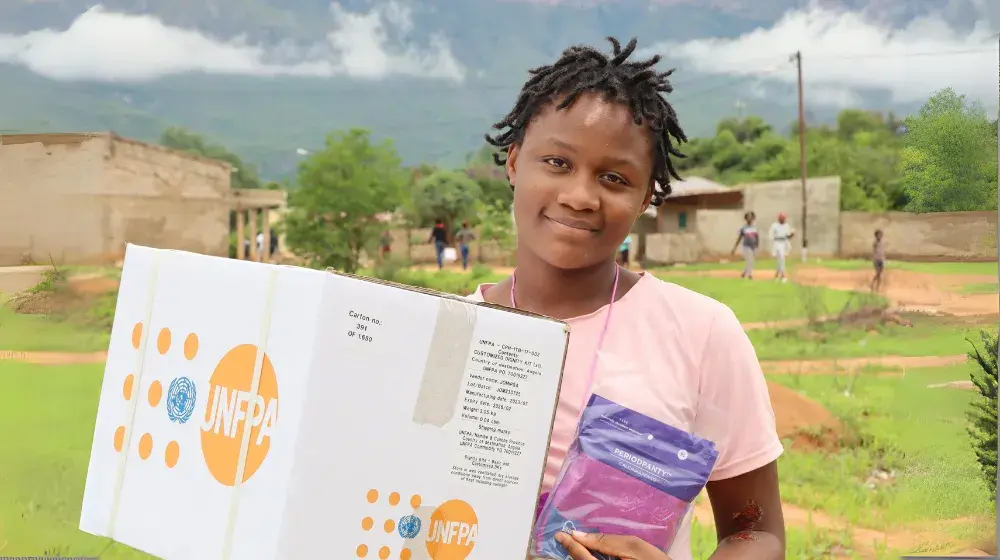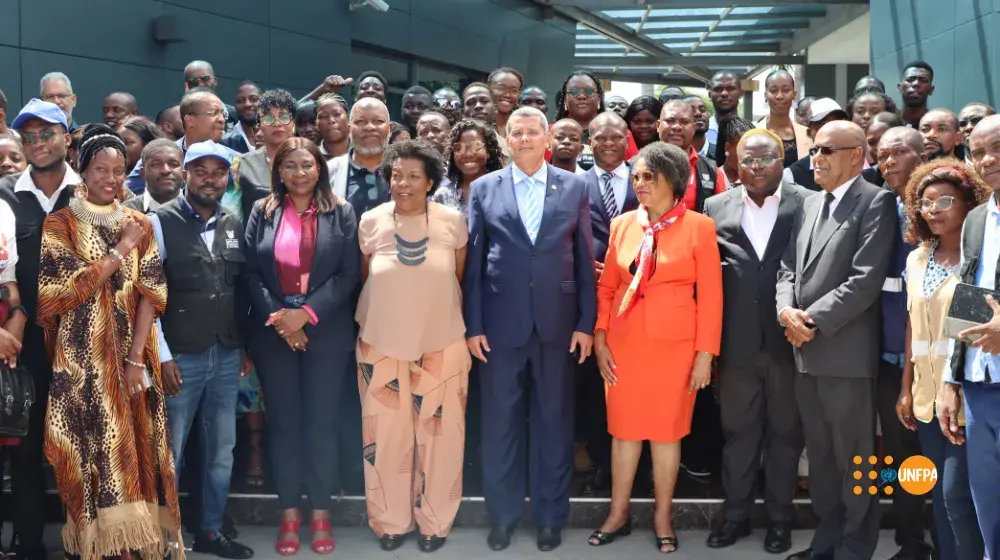The Ministry of Transport of Angola and the United Nations Population Fund establish partnership.
UNFPA and Ministry of Transport of Angola Sign a Partnership Agreement
to achieve the 17 Sustainable Development Goals (SDGs) and the Nairobi Commitments in Angola
Signing this agreement, the Ministry of Transport of Angola commits to adopting practical and safe solutions to train its workers, collaborators and managers in matters of gender equality and prevention of gender violence. The partnership also aims at ensuring the integration and promotion of women by developing in hiring policies with a gender lens to secure gender equality medium and long term .
Luanda, 17 May 2022- The Ministry of Transport of Angola (MINTRANS) and the United Nations Population Fund (UNFPA) signed a cooperation protocol in Luanda that aims to undertake the achievement of the Sustainable Development Goals agenda (SDG30) in Angola.
As part of its social responsibility policy, the Ministry of Transport has defined four of the SDGs as priorities for the present and future of the sector, to embody a form of governance based on Social Responsibility.
These four goals are SDG 5 Gender Equality, SDG 8 Decent Work and Economic Growth, SDG 9 Industry, Innovation and Infrastructure and actions leading to Sustainable Cities and Communities SDG 11.
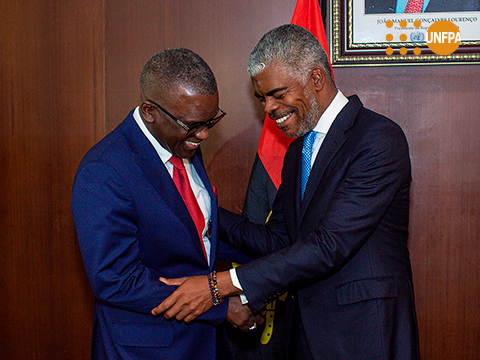
This partnership with UNFPA is focused on SDG 5, and it means counting on Ministry assistance for the transport of sexual and reproductive health materials in support of girls and women, especially the most vulnerable, and the provision of spaces for social mobilization and empowerment for young people. The training will be for workers in the sector, and relevant communities, to be up-to- date in matters regarding gender equality and prevention of gender violence. The partnership also aims to provide technical support to MINTRANS to ensure the integration of women into hiring policies with a view to gender equality in the medium and long term.
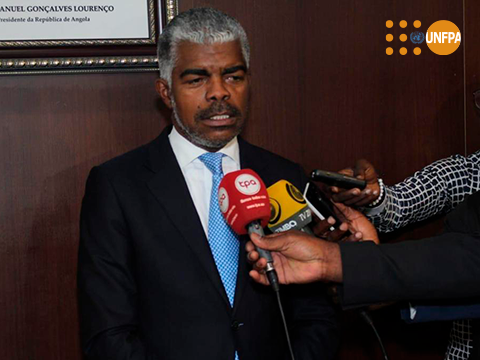
In accordance with the terms of the protocol signed, the cooperation between the Ministry of Transport and UNFPA aims to achieve objectives within the scope of the application of the development and sharing of advocacy interventions and technical assistance, aimed at the implementation of the MINTRANS Social Responsibility Program , with an emphasis on the promotion and protection of sexual and reproductive health rights, including for adolescents and young people.
In addition to the objectives already mentioned, this Cooperation Protocol also intends to implement joint interventions for the elaboration of the Sustainability and Social Responsibility Policy of the Transport Sector and its respective Action Plan to be aligned with the Platform of Sustainable Development Objectives, the inclusion of various regulatory institutes and the different public companies.
In addition, the two parties will promote the dissemination of the Sustainability and Social Responsibility Policy from the perspective of the Decade of Action to achieve the Sustainable Development Goals, in addition to developing mechanisms for raising funds from the budgets of the corporate social responsibility departments, in particular, international private sector companies linked to the Transport sector, for the financing of MINTRANS Social Responsibility Programmes, with emphasis on the areas of sexual and reproductive health, gender, adolescents and young people.
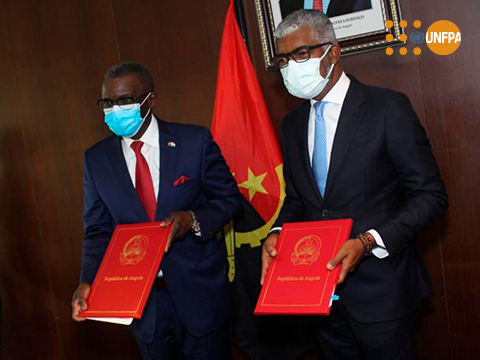
The United Nations Population Fund has developed a menstrual health training project aimed at girls and boys nationwide. This program provides information and materials suitable for adequate menstrual management, thus removing barriers related to menstruation that prevent girls from staying in school during that time.
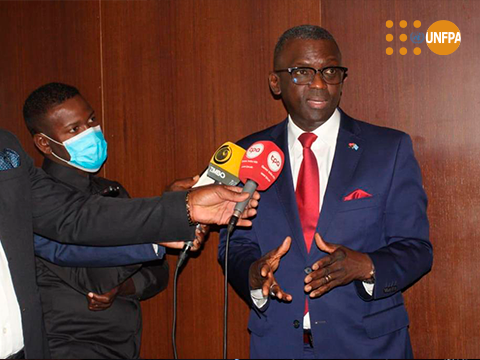
“The Angolan Ministry of Transport is a partner in this project that helps Angola reach 2050 with a healthier population and with equal rights. An Angola capable of building a more stable, fair and developed society,” said Dr. Mady Biaye.
On the other hand, with the partnership established, managers of the transport sector will gain increased access to community dialogues in order to monitor social responsibility projects so that they can respond to the real needs of workers in the transport sector and relevant beneficiary communities .
About UNFPA
UNFPA -United Nations Population Fund- is the sexual and reproductive health agency of the United Nations. Since its creation in 1969, it has been a key player in development programs related to sexual and reproductive health, gender equality and population dynamics in the 155 countries in which it operates. UNFPA's mission is to provide a world where every pregnancy is wanted, every birth is safe and every young person's potential is fulfilled.
Currently, UNFPA is guided in its work by the Program of Action approved at the International Conference on Population and Development (ICPD), held in Cairo, Egypt, in 1994. During the ICPD, 179 UN Member States - including Angola - agreed that gender equality and meeting education and health needs, including reproductive health, are prerequisites for achieving long-term sustainable development.

